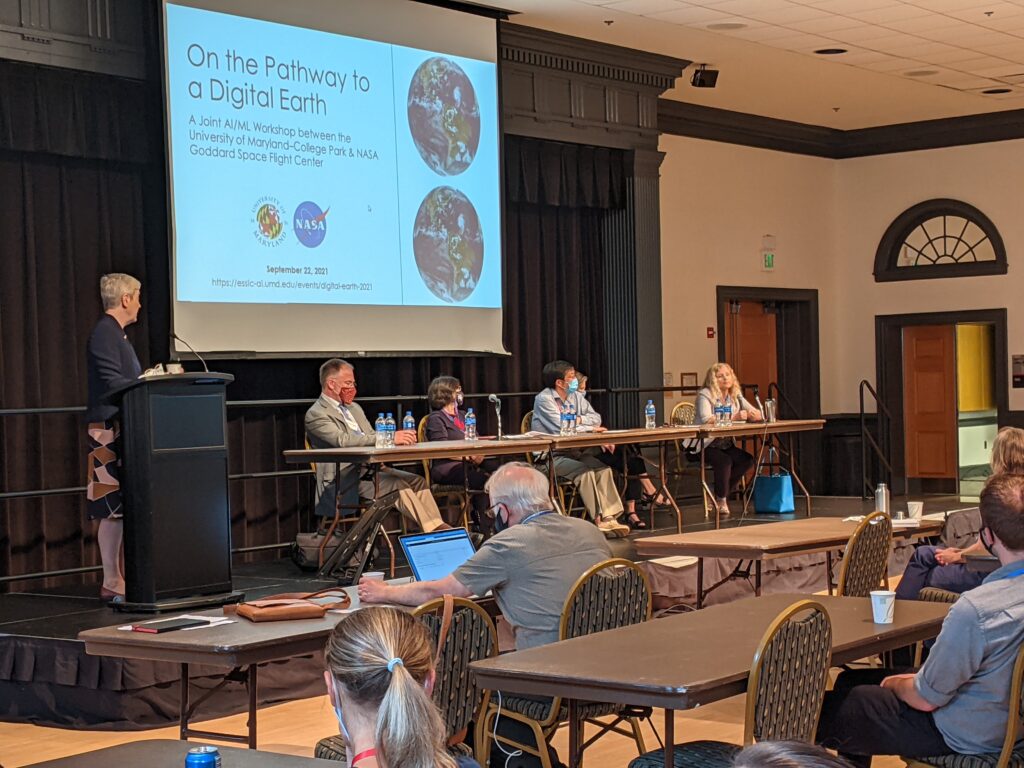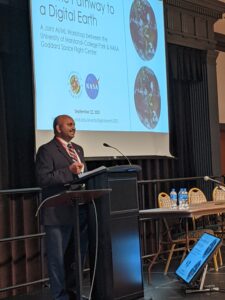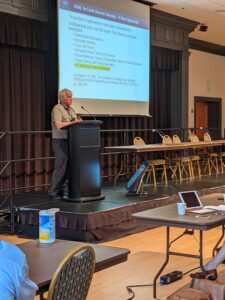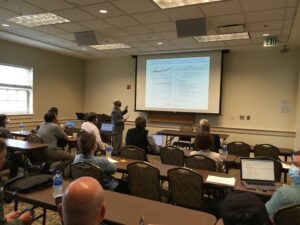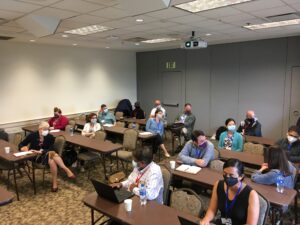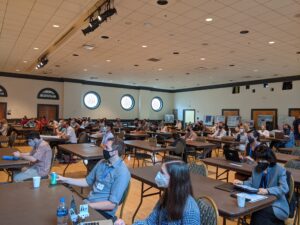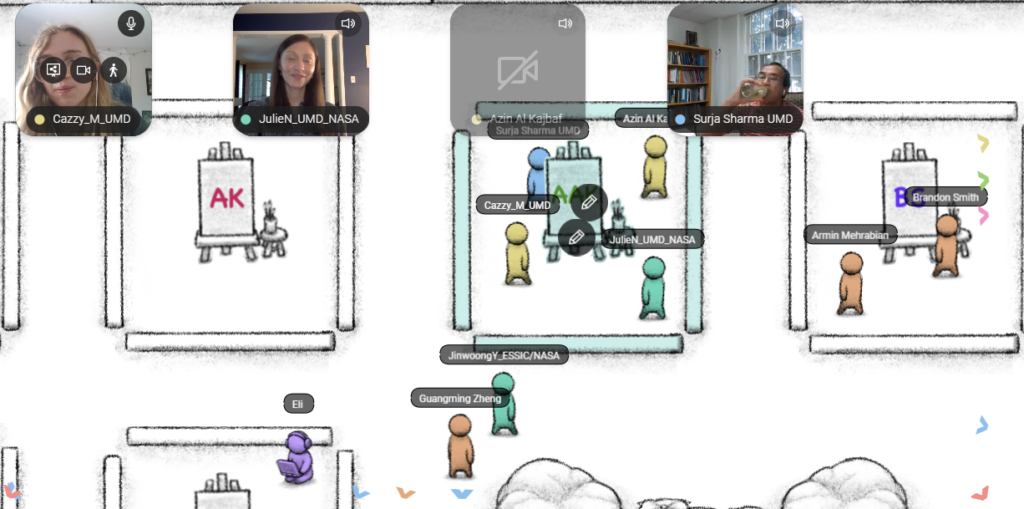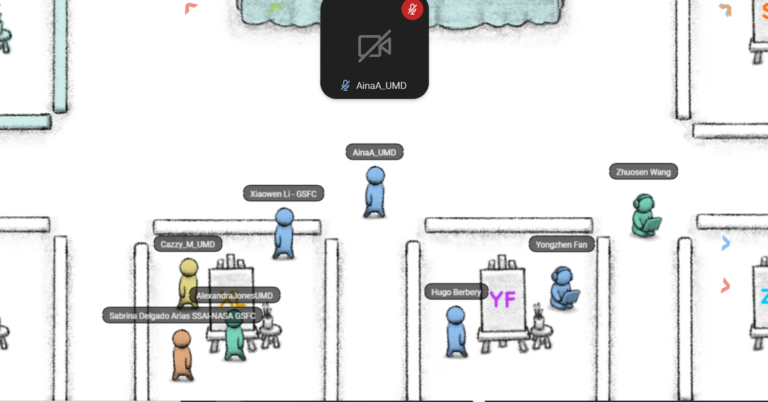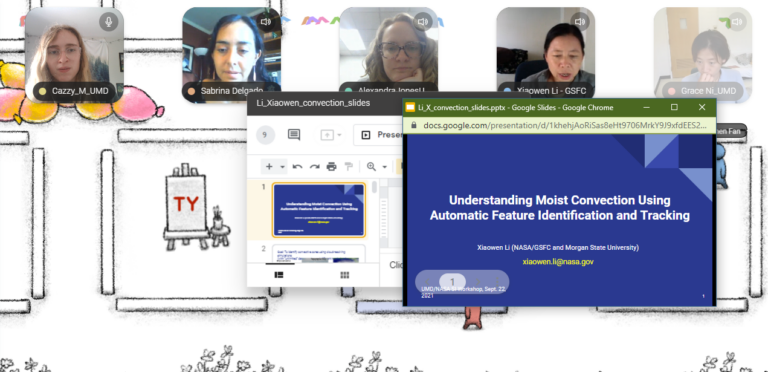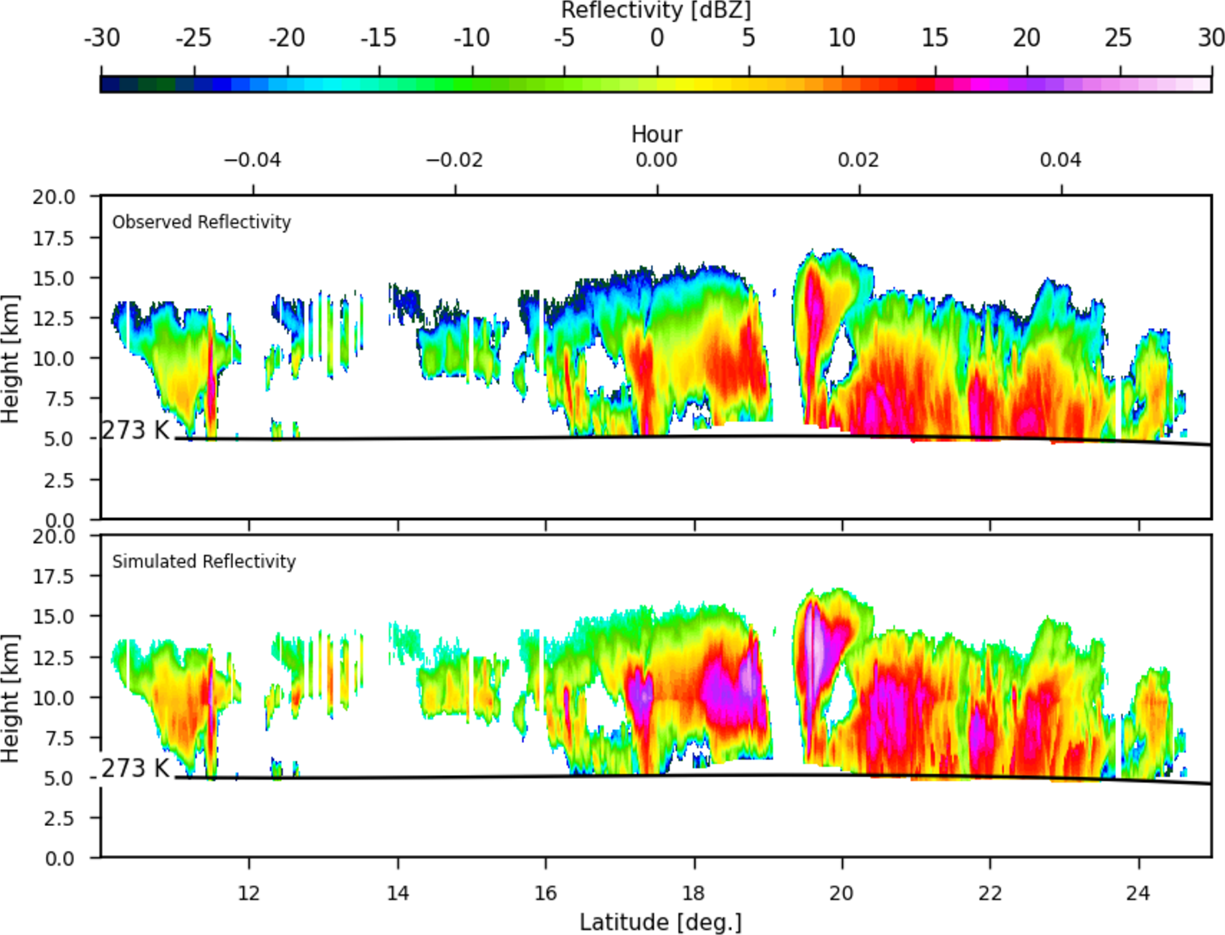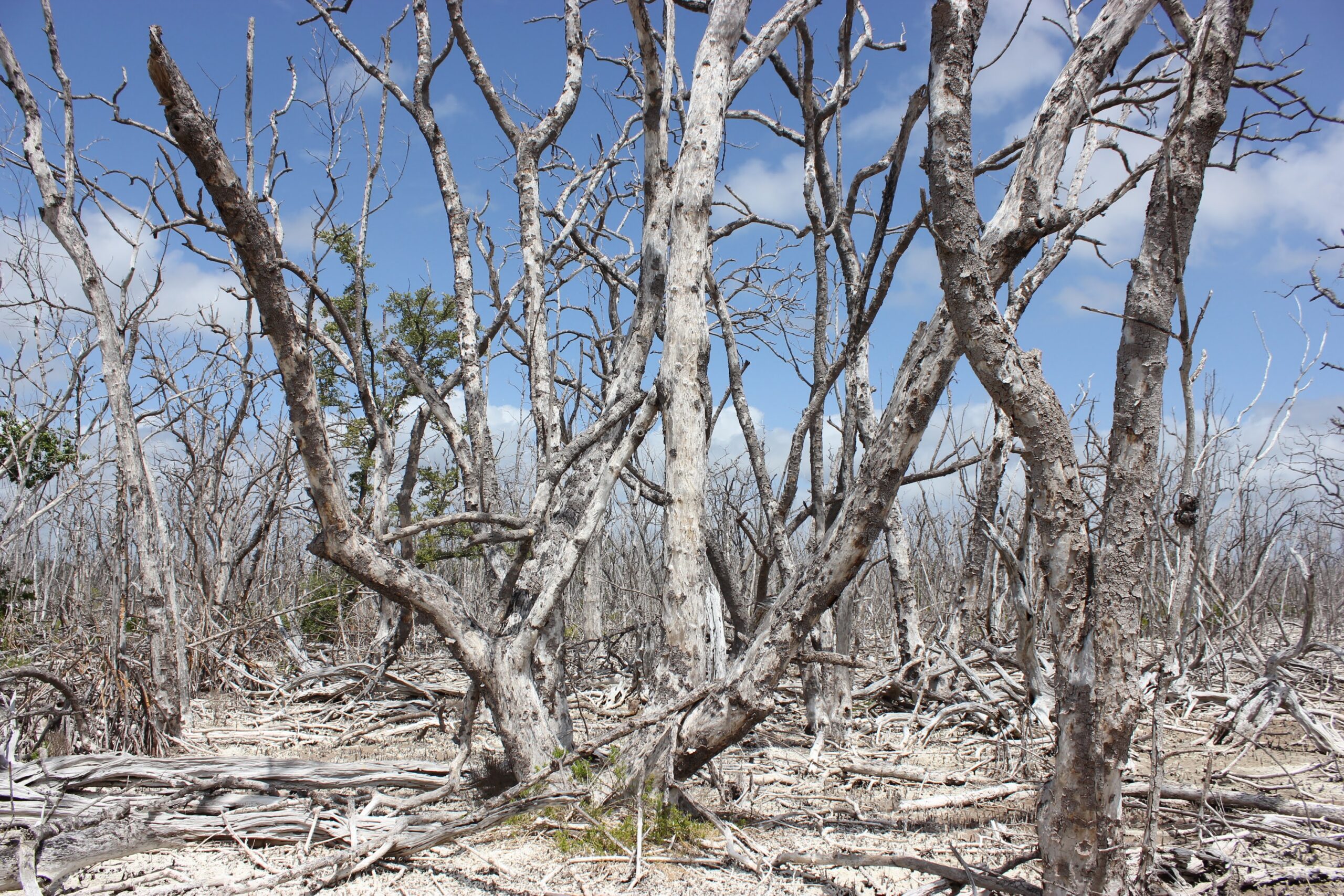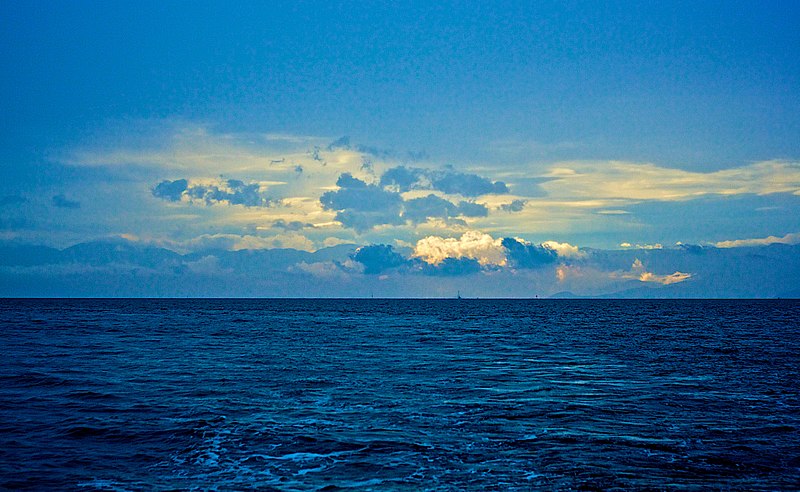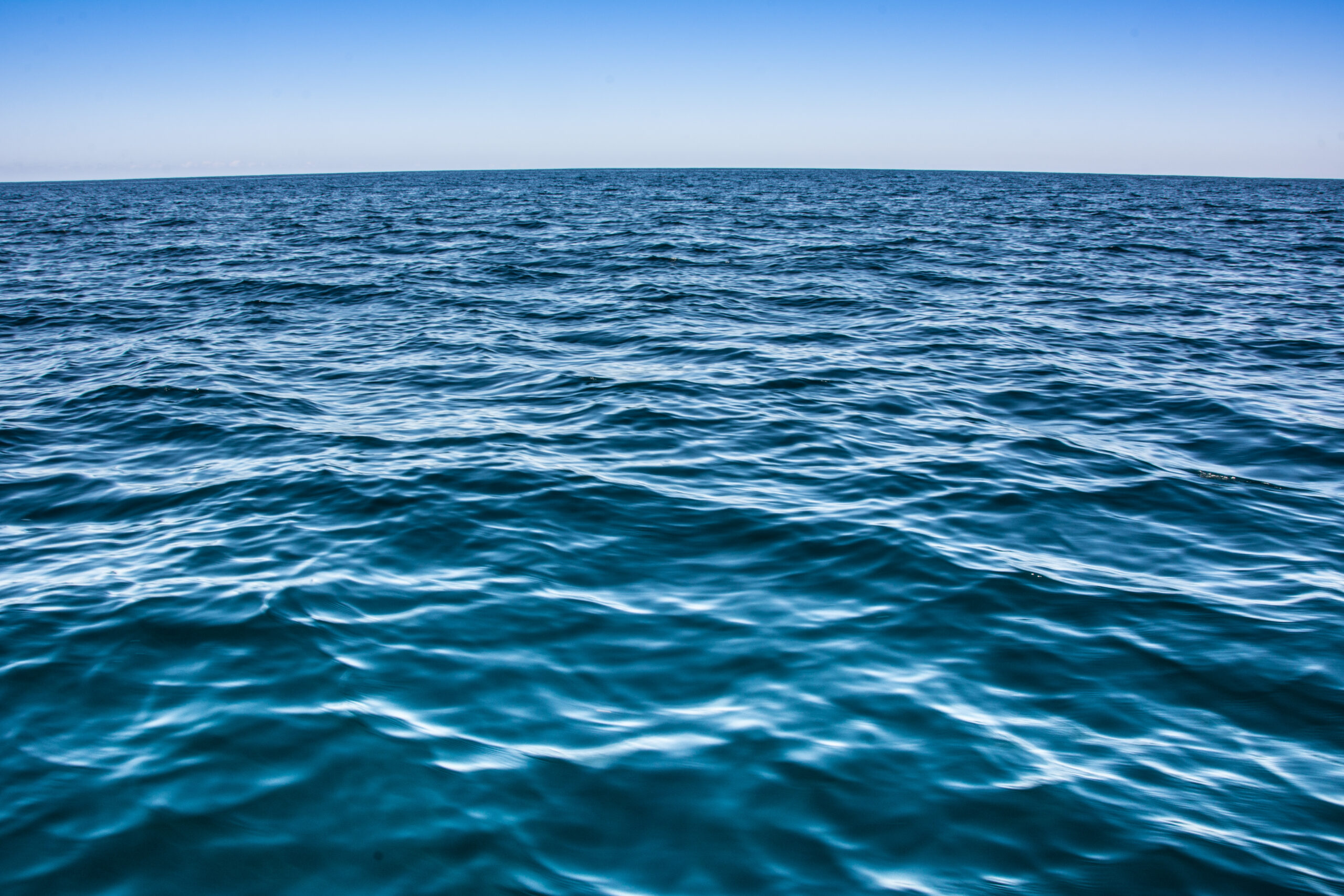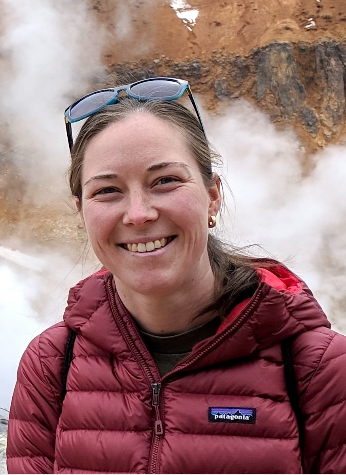Last month, researchers from the NASA Goddard Space Flight Center (GSFC) and the University of Maryland (UMD) Earth System Science Interdisciplinary Center (ESSIC) gathered to explore the challenges and opportunities in applying machine learning and artificial intelligence in Earth systems science.
This two-day hybrid event, “On the Pathway to a Digital Earth” was ESSIC’s 1st AI/ML workshop and led by ESSIC Director Ellen Williams. This workshop is the first activity of the new ESSIC AI Forum, a platform for ESSIC and partner scientists to foster novel research while connecting to inter- and cross-disciplinary AI/ML communities on campus and beyond.
The first day of the workshop, September 22, 2021, was structured around plenary talks, a panel discussion, and breakout sessions to facilitate conversations between researchers from both UMD and GSFC. Amitahb Varshney, Dean of the College of Computer, Mathematical and Natural Sciences (CMNS), Jim Irons, Director of NASA GSFC’s Earth Sciences Division, and Ellen Williams gave opening and closing remarks. Plenary session talks were given by Tom Goldstein (UMD Computer Science), Kevin Murphy (NASA – HQ) and Matt Hansen (UMD Department of Geographical Sciences). A panel discussion on collaboration was supported by Christa Peters-Lidard (NASA/GSFC), Margaret Palmer (UMD/SESYNC), Nargess Memarsadeghi (NASA/GSFC), Xin-Zhong Liang (UMD/ESSIC), and Bill Regli (ARLIS). During the breakout sessions, participants split up into groups and gave lightning (<5 minutes) talks spanning the diverse subfields of Earth Science research and different ML/AI approaches. These sessions helped identify specific areas of collaboration between UMD and NASA GSFC.
Image credit: Luther Clark (top two on the right); Cazzy Medley (all others)
Also on day one was a physical poster session, held during the breaks and lunch period. 13 posters were displayed around the hall, with research themes including data bottlenecks in ML/AI, explainable, interpretable, trustworthy AI, ML/AI algorithms applied to earth science, and collaborative research encompassing both earth science and data science.
The second day of the workshop was an online poster session held via Topia, a social platform in which participants don avatars and roam around an explorable world. Presenters published their posters via Google Slides and shared them through clickable easels. Audience members could then gather around the easels to join video calls to participate in the presentation. Both days of the event boasted ample attendance and participation.
Image credit: Aina Ahanmisi (bottom left); Cazzy Medley (all others)
Workshop materials are limited to those who registered for the event. If you registered for this workshop and would like to access the event recording or any presentations, please contact cazzy@umd.edu.

